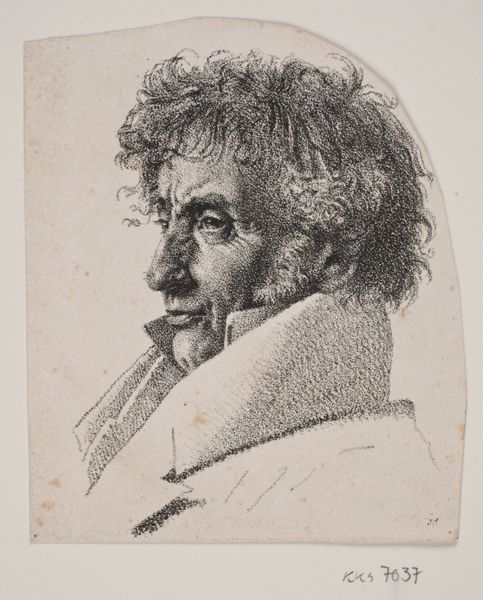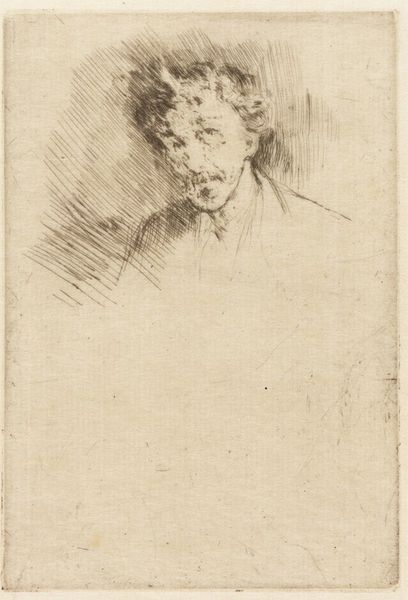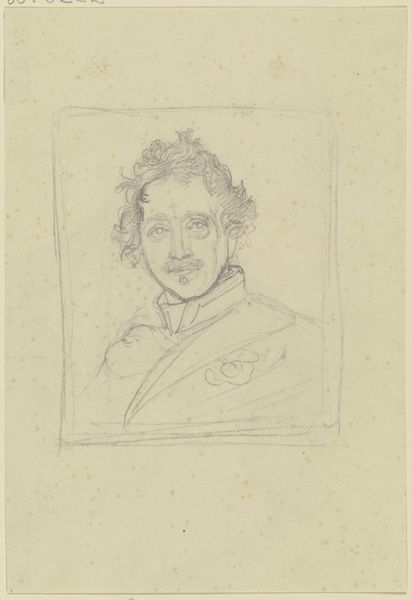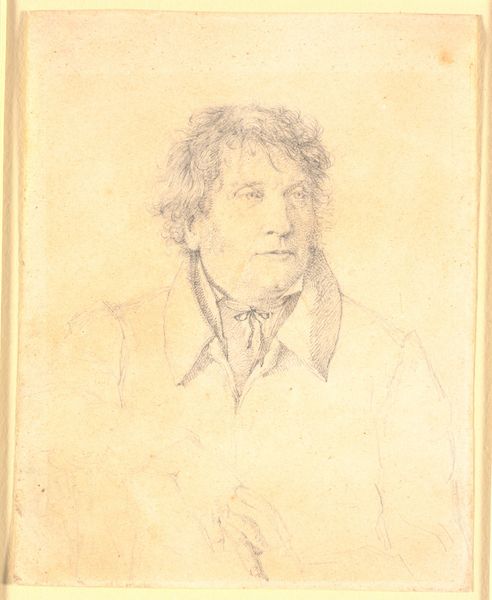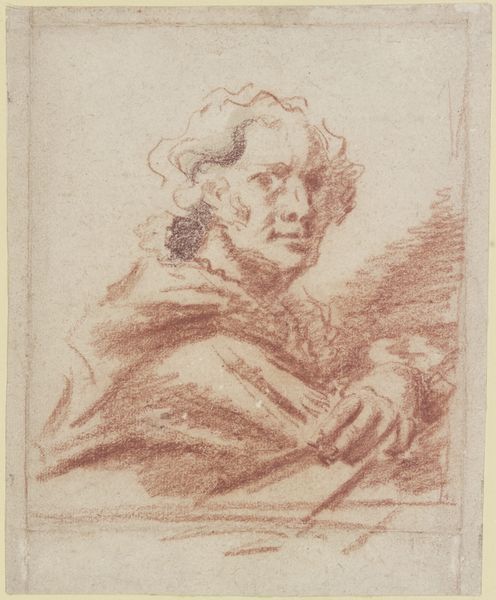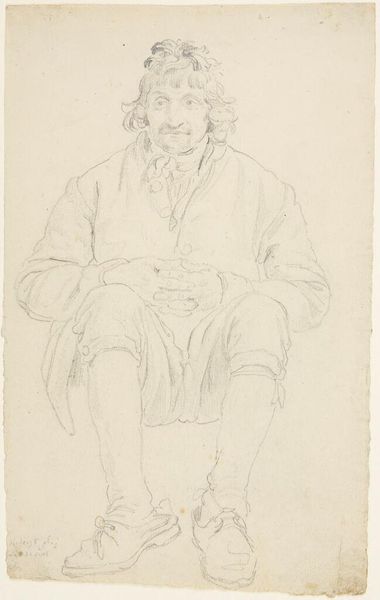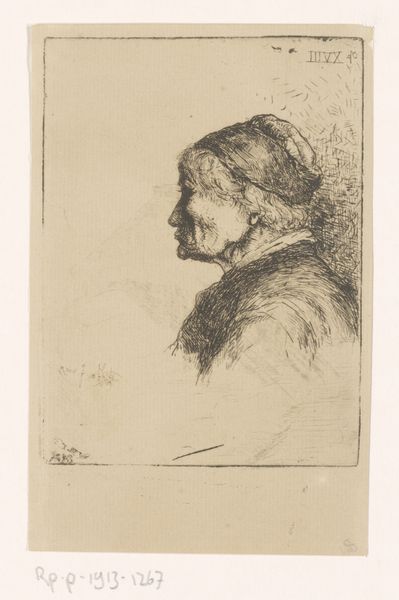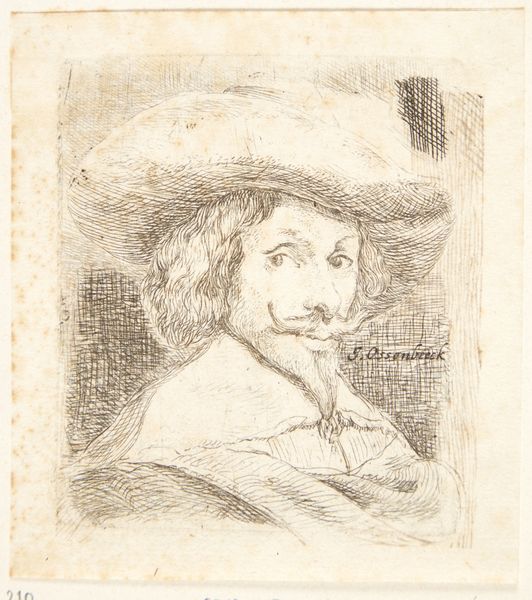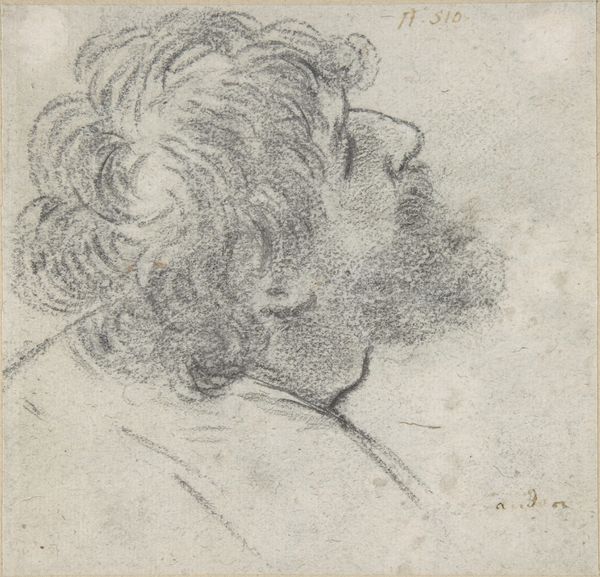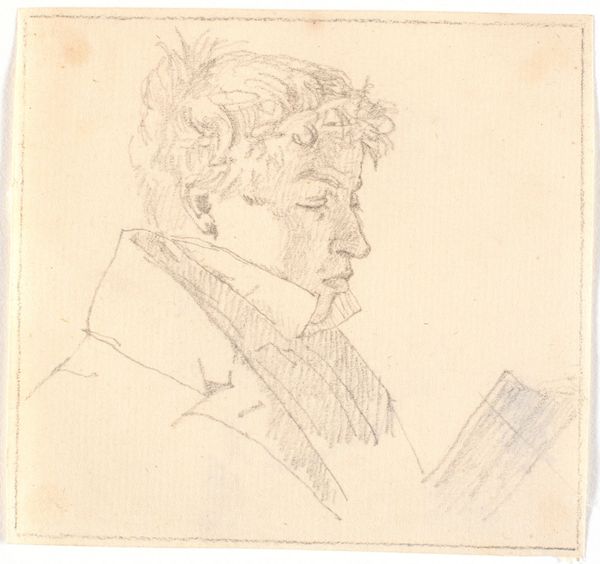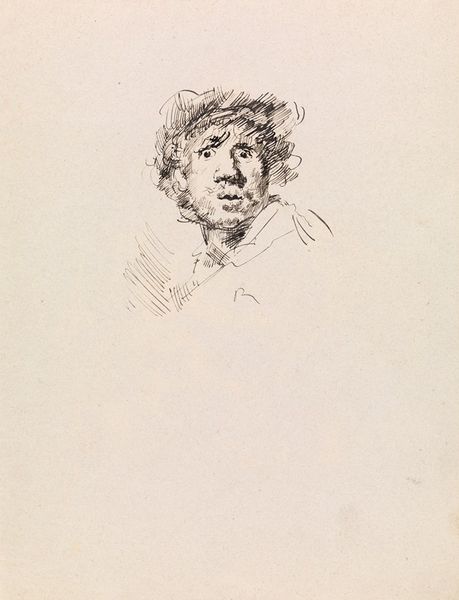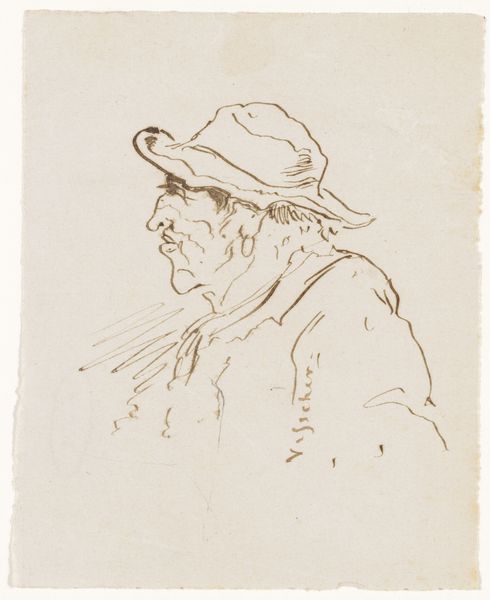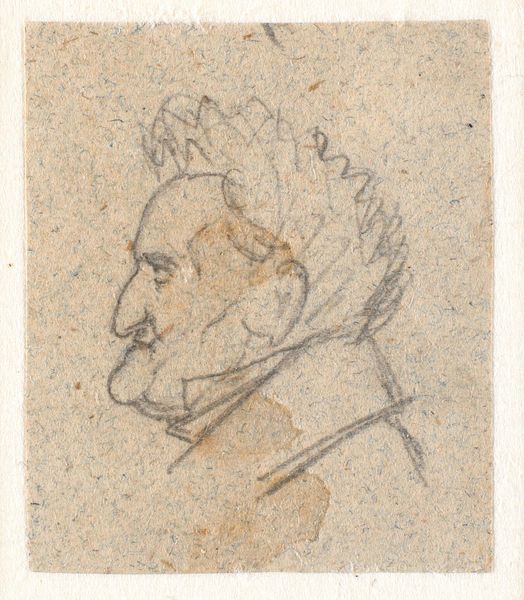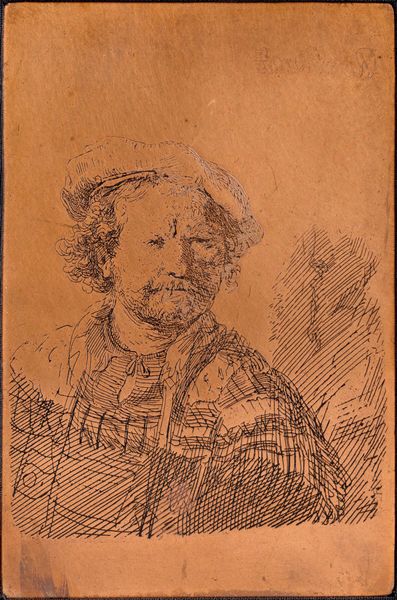
drawing, pencil
#
portrait
#
drawing
#
pencil drawing
#
romanticism
#
pencil
#
portrait drawing
Dimensions: 122 mm (height) x 100 mm (width) (bladmaal)
Curator: Welcome. Here we have Christen Købke’s 1832 pencil drawing, "Portrait of Master Baker P.B. Købke, the Artist's Father." Editor: My first thought? Resignation. There's a quiet stillness, a deep breath held. The shading feels... muted. Curator: Interesting observation. As a Romantic era portrait, it's fascinating because it avoids idealized representation, a popular form in Danish Golden Age painting. We see Købke’s father as he was: a man worn by life. The soft lines communicate more introspection than societal prominence, contrasting starkly with conventional, commissioned portraits of the time. Editor: Exactly. Those slight imperfections become strengths, almost like a map etched by experience. And this is personal! It’s his dad, portrayed so frankly and tenderly. It also has a raw sketch quality. What would make him want to show us this? Curator: That 'raw sketch quality' is central, reflecting shifting artistic values valuing authentic emotion and direct observation over formal perfection. By choosing to portray his father with visible imperfections, Købke humanizes his subject. It reflects Romanticism's broader concern of shifting cultural power and the individual's place within society. The middle classes were asserting themselves, and this may very well be a deliberate counter-statement to aristocratic grandeur. Editor: So, the act of choosing a simple drawing emphasizes intimacy. No royal pomp, just a man and his son, looking at him and offering him a permanent and visible moment. Very powerful. What might Købke Sr. think, I wonder, to be seen so plainly? Curator: A fine question, one unanswerable in the conventional historical sense. I believe, regardless, it presents us with the profound emotional resonance achieved through minimal means, allowing us access to a bygone era with incredible sincerity. Editor: Well, this glimpse certainly humanizes that bygone era in return, prompting reflection on who gets remembered and why, beyond royal portraits and lavish scenes. It makes you want to phone your dad, doesn’t it?
Comments
No comments
Be the first to comment and join the conversation on the ultimate creative platform.
